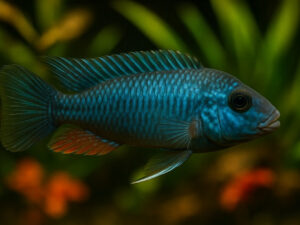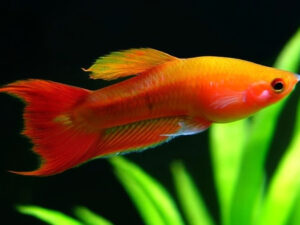If you're planning a fishing trip or boat excursion, leave the bananas at home. This centuries-old maritime superstition bans bananas from boats due to historical shipwrecks, scientific hazards, and persistent bad luck stories. The belief originated in the 1700s when banana-carrying ships frequently met disaster, and today's captains still enforce strict no-banana policies.
The superstition extends beyond fresh fruit to include banana bread, Banana Boat sunscreen, and even banana-print clothing. Whether you believe in the curse or not, respecting this maritime tradition ensures smooth sailing with your captain and crew.
The 1700s Origins: When Bananas Became Maritime Villains
The banana superstition took root during the golden age of Caribbean trade routes. Between 1700 and 1750, numerous ships carrying banana cargo mysteriously disappeared or met tragic ends. When other vessels discovered these wrecks, they often found only floating yellow bananas marking the disaster sites.
Pacific Islander cultures, particularly in Hawaii and Polynesia, had already established banana taboos on fishing vessels. Their traditions warned that bananas on fishing boats would guarantee empty nets and angry sea gods. European traders adopted these beliefs after experiencing their own banana-related misfortunes.
Spanish and Portuguese merchant ships documented an alarming pattern: vessels hauling bananas suffered more accidents than those carrying other cargo. Ship logs from this era reveal captains gradually banning the fruit entirely, establishing why bananas are bad luck on boats even today.
| Year | Event | Impact on Superstition |
|---|---|---|
| 1700s | Multiple banana cargo ships lost | Superstition spreads through Caribbean |
| 1750 | Pacific Islander beliefs documented | European adoption of banana taboos |
| 1776 | Methane gas discovered | Scientific explanation emerges |
| 1800s | Banana trade expands | Superstition goes global |
| Modern Day | Charter captains enforce bans | Tradition continues strong |
7 Scientific and Practical Theories Behind the Ban
The Ethylene Gas Problem
Bananas release ethylene gas as they ripen, causing nearby fruits and vegetables to spoil rapidly. In the confined cargo holds of wooden ships, this created a domino effect of rotting provisions. Sailors watched helplessly as their entire food supply deteriorated, leading to starvation on long voyages.
Modern fruit storage science confirms this phenomenon. The ethylene concentration from banana cargo could spoil an entire ship's provisions within days. This scientific fact transforms superstition into practical maritime wisdom.
Methane Gas and Fire Hazards
Fermenting bananas produce methane gas, which can spontaneously combust in enclosed spaces. Before methane's discovery in 1776, sailors witnessed mysterious fires erupting from banana-filled cargo holds. These unexplained explosions fueled beliefs about banana bad luck fishing vessels.
The combination of tropical heat, poor ventilation, and thousands of ripening bananas created perfect conditions for disaster. Ship fires at sea meant almost certain death, making the banana boat bad reputation well-earned among maritime communities.
Deadly Stowaways in Banana Bunches
Brazilian wandering spiders, one of the world's most venomous arachnids, frequently hide in banana bunches. Sailors bitten by these stowaways faced agonizing death with no medical help available at sea. Venomous snakes and scorpions also traveled in banana shipments, turning cargo holds into death traps.
Termites presented another threat, as they arrived hidden in banana crates and devoured wooden ship structures. A termite infestation could compromise a vessel's integrity, leading to catastrophic failure in rough seas. These real dangers cemented why no bananas became an iron-clad maritime rule.
The Speed Theory: Too Fast for Fish
Banana cargo ships raced against time to deliver their perishable freight before spoilage. These vessels maintained maximum speed, making it impossible for crew members to fish for fresh food. The phrase "bananas on a boat superstition" often stems from frustrated fishermen who couldn't drop lines on speeding banana boats.
Charter fishing captains noticed similar patterns when bananas came aboard their vessels. The urgency associated with banana transport seemed to curse fishing efforts, establishing the connection between bananas bad luck and poor catches that persists today.
Slippery Deck Disasters
Discarded banana peels on wet decks created serious hazards for sailors. Maritime accident records from the 1700s document numerous injuries from slipping on banana debris. A fallen crew member could suffer broken bones or wash overboard in rough conditions.
Modern maritime safety studies emphasize deck hazards, validating historical concerns about banana peels. This practical danger contributed to captains banning bananas entirely rather than trusting crews to dispose of peels properly.
Fish Repellent Properties
Fish possess olfactory abilities 1,000 times more sensitive than dogs. Banana oils on fishermen's hands can contaminate bait and fishing lines, potentially repelling target species. Marine biologists studying fish behavior confirm that foreign scents affect fishing success.
The sweet banana residue proves especially problematic in saltwater fishing, where predatory species rely heavily on scent trails. This scientific explanation supports fishermen's observations about bananas on fishing boats resulting in empty coolers.
The Floating Graveyard Marker
Unlike most cargo, bananas float when ships sink. Sailors encountering banana patches at sea knew they marked tragedy below. This grim association made bananas symbols of death and disaster in maritime culture. The psychological impact of finding floating bananas traumatized surviving crews.
The banana boat wiki of maritime disasters consistently mentions these yellow markers of doom. Sailors began viewing bananas as cursed fruit that somehow caused the very wrecks they marked, cementing their reputation as harbingers of maritime misfortune.
Modern Fishing Culture: How the Superstition Thrives Today?
Today's charter captains take banana bans seriously, often posting "No Bananas" signs at their docks. Professional fishing guides report turning away clients who arrive with banned fruit, prioritizing tradition over customer service. Tournament organizers explicitly prohibit bananas in competition rules.
The modern ban extends far beyond fresh fruit to include:
- Banana muffins, bread, and chips
- Banana-flavored drinks and smoothies
- Banana Boat sunscreen products
- Clothing with banana prints
- Banana-scented air fresheners
- Banana candy and gum
- Anything with "banana" in the name
Regional variations exist in enforcement strictness. Florida Keys captains prove notoriously vigilant, while Pacific Northwest guides show more flexibility. Multi-day commercial vessels often ignore the superstition entirely, focusing on practical concerns over tradition.
Real Fishermen's Stories: When Bananas Strike
Captain Mike from Lake Murray recalls the day he discovered hidden bananas in a client's lunch. "Within an hour, our fish finder died, the trolling motor quit, and storm clouds appeared from nowhere." After tossing the contraband overboard, conditions immediately improved, and they landed their limit.
An experienced freshwater angler shared his banana curse experience: "I smuggled a banana smoothie aboard thinking the captain was being ridiculous. We didn't catch a single fish all day, while boats around us limited out. Never again."
Professional tournament angler Sarah Williams lost a major competition when her partner's child left banana chips in the tackle box. "Our electronics failed during the final hour when we were leading. The repair shop found banana chip crumbs inside the unit. Coincidence? I don't risk it anymore."
These stories, whether coincidence or curse, reinforce why captains maintain zero-tolerance banana policies. The fishing community's collective experience suggests respecting the tradition, regardless of personal beliefs.
The Science of Superstition: Does Belief Create Reality?
Psychological research reveals that superstitions can create self-fulfilling prophecies. Anglers worried about bananas may fish less confidently, make poor decisions, or focus on perceived bad luck rather than technique. This mental state genuinely impacts performance.
Marine psychology studies show that crew confidence significantly affects fishing success. When everyone believes bananas bring misfortune, that shared anxiety creates tension that interferes with teamwork and decision-making.
However, correlation doesn't prove causation. Equipment failures, weather changes, and poor fishing happen regularly without bananas present. The human tendency to remember negative events associated with bananas while forgetting banana-free failures reinforces the superstition.
Ultimately, whether bananas actually cause bad luck matters less than the belief's impact on crew morale. Smart anglers respect the tradition to maintain harmony aboard, ensuring everyone fishes with confidence.
Exceptions to the Rule: When Bananas Are Allowed
Not all vessels enforce banana bans equally. Multi-day commercial fishing operations often stock bananas as crew provisions, prioritizing nutrition over superstition. These professional operations focus on sonar, weather patterns, and fish behavior rather than fruit-based fears.
Some regions show more tolerance for banana products. Pacific tuna boats regularly carry bananas without reported disasters. Cruise ships and pleasure craft rarely observe the tradition unless specifically requested by fishing-focused passengers.
Pro Tip: If you accidentally bring bananas aboard, immediately inform the captain. Honest mistakes receive better treatment than discovered deception. Some captains perform cleansing rituals or simply ensure the offending fruit goes overboard before lines hit the water. Never try hiding bananas - crews always find out, and deception worsens any perceived curse.
Geographic factors also influence enforcement. Caribbean and Gulf Coast captains prove strictest, while Great Lakes guides often consider the superstition quaint rather than critical. Research your destination's culture before packing snacks.
Beyond Bananas: Other Maritime Superstitions to Know
Bananas represent just one entry in the extensive catalog of maritime superstitions. Understanding these traditions helps navigate boat etiquette and avoid unintentional offense. Fish enthusiasts should familiarize themselves with regional beliefs.
Common maritime superstitions include:
- No whistling (summons storms)
- No women aboard (historical bad luck)
- Never rename a vessel (angers sea gods)
- Avoid Friday departures (unlucky day)
- No redheads before sunrise (Celtic curse)
- Always step aboard with right foot first
- Never say "rabbit" on a boat
| Superstition | Origin | Modern Observance | Severity |
|---|---|---|---|
| Bananas | 1700s Caribbean | Widely enforced | High |
| Whistling | Ancient seafaring | Moderate enforcement | Medium |
| Women aboard | Medieval times | Rarely enforced | Low |
| Friday departures | Christian tradition | Sometimes observed | Medium |
| Vessel renaming | Greek/Roman | Ritual required | High |
These beliefs reflect centuries of maritime culture attempting to control uncontrollable seas. While modern technology reduces actual risks, traditions persist as cultural touchstones connecting today's boaters with maritime heritage.
Frequently Asked Questions
Why are bananas bad luck on fishing boats specifically?
Fishing boats operate differently than cargo vessels, requiring slow speeds and frequent stops. The historical association between bananas and rushed transport contradicts successful fishing practices. Additionally, banana odors may affect bait effectiveness, and the fruit's reputation for bringing bad luck impacts crew confidence during fishing operations.
Is banana boat sunscreen really bad luck?
Many captains ban Banana Boat sunscreen purely for its name association. While the product contains no actual bananas, superstitious crews believe the mere word "banana" invites misfortune. Some anglers report equipment failures and poor catches when using this brand, though skeptics attribute this to confirmation bias rather than cosmic punishment.
What happens if someone brings a banana on a boat?
Reactions vary from gentle ribbing to immediate disposal overboard. Strict captains might return to dock or cancel the trip entirely. Most commonly, the offending fruit gets tossed while the crew performs informal cleansing rituals. Repeat offenders may find themselves blacklisted from future trips.
Do commercial fishing boats follow the banana superstition?
Large commercial operations typically ignore banana bans, focusing on profit over superstition. However, smaller commercial boats with tight-knit crews often maintain the tradition. The superstition's observance generally decreases with vessel size and corporate structure.
Can you eat banana-flavored foods on a boat?
Hardcore believers ban anything banana-related, including flavored products, banana bread, and smoothies. Moderate observers might allow processed foods without actual banana content. The safest approach involves asking the captain's preference before bringing any banana-adjacent items aboard.
Conclusion
The banana boat superstition persists because it connects modern mariners with centuries of seafaring heritage. Whether examining historical disasters, scientific hazards, or psychological impacts, bananas earned their maritime reputation through real consequences.
Smart boaters respect these traditions regardless of personal beliefs. The ocean environment demands humility and cooperation. Following established customs, even seemingly silly ones, demonstrates respect for maritime culture and fellow crew members.
Before your next boat trip, check your bags for contraband fruit. Leave the bananas for landlocked consumption. Your captain, crew, and possibly the fishing gods will appreciate your consideration. Fair winds and following seas await those who honor the age-old wisdom: no bananas on board.



